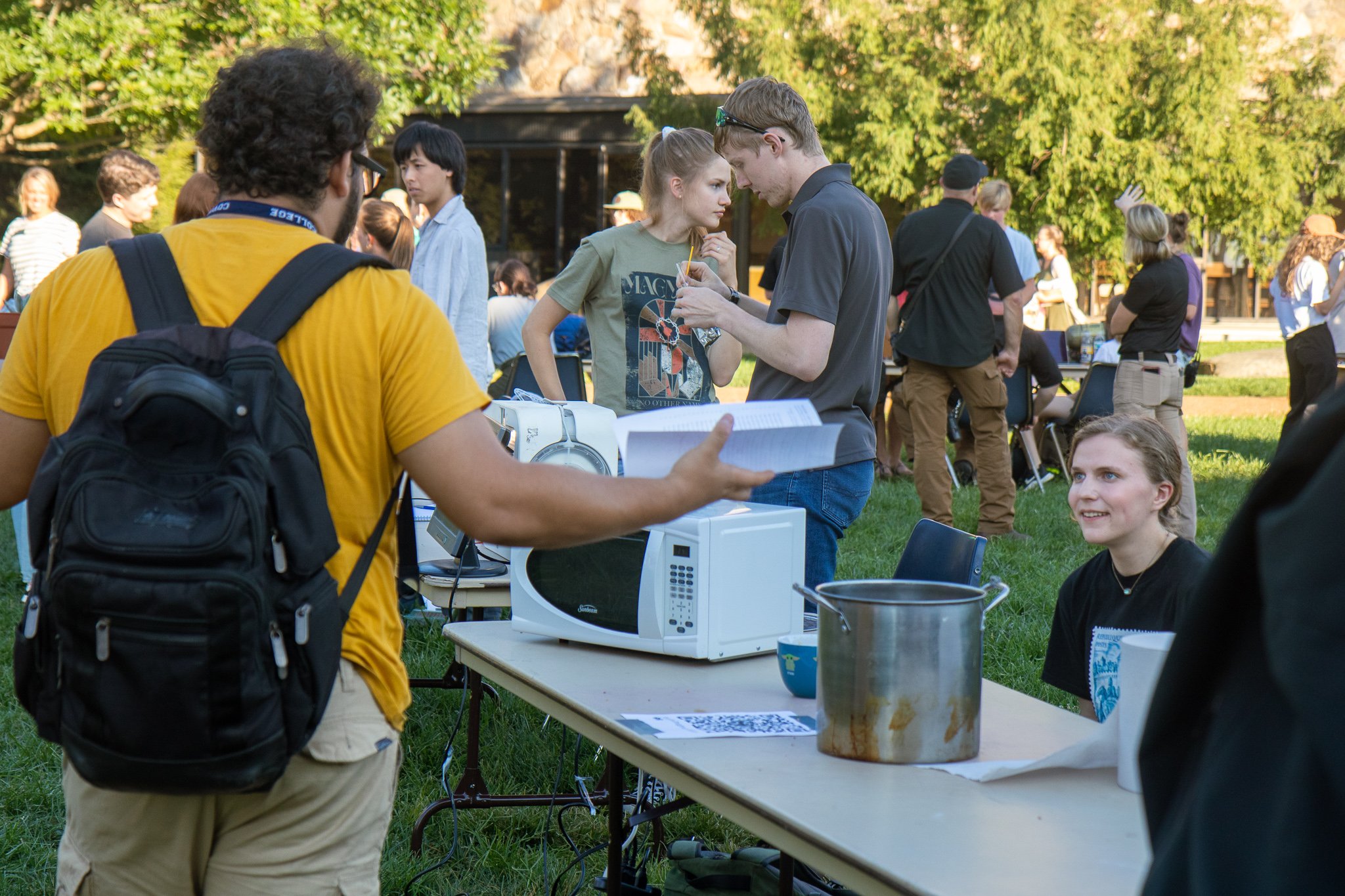“Clearly, we don’t do what other colleges do,” Kelsey Bazzel said in response to a question about the frequent student activity at Covenant College.
Bazzel, the Student Life and Student Leadership Coordinator at Covenant College, shared insight on the philosophy of event planning, the private event calendar and the intentions behind the activity on campus.
According to Bazzel and her discussions with Student Life, campus events and their regularity are designed to encourage students to “take a break from the books and have some fun.” Bazzel also mentioned that community is something specific to Covenant and that Student Development tries to prioritize that considering the smaller size of the student body.
Clubs, RAs and resident hall presidents have their own events that they plan or are required to prepare to promote community among students.
Covenant does have more campus-wide events when compared to other institutions. “Dances are definitely unique to Covenant, and I think that definitely does replace the party, fraternity culture of other colleges,” Bazzel said.
Unlike the academic calendar, Covenant students do not have access to an event calendar. Bazzel said there is a google spreadsheet for internal use that is available to CAB, Senate and the Intercultural program for them to plan their dates. “The events that are serving bigger chunks of campus pull from that,” Bazzel said.
Chaplain Grant Lowe of Covenant College’s Chapel Department shared his philosophy of rest as a responsibility of the individual and an issue of “spiritual discipline.”
Lowe said, “Students tend to think that if they’re going to play an active part in this community that being a part of all these offerings is important.” He went on to say that students are put in a position where they must choose between rest and a good thing. “The college can make that a little bit easier in the way that they choose to program,” Lowe said.
Is rest prioritized in the Covenant College community? Lowe mentioned the fact that if students wonder what they prioritize, they should look at what they spend their time on. He said that they might find that they do not make rest or even prayer a priority in their lives if it is indeed absent in their daily life.
“Rest is hard, and another piece of rest is that you have to be convinced that it’s necessary,” Lowe said. Students tend to overbook or are at least hard pressed to find time for rest and personal devotionals. “Finding time alone here is important for rest,” said Michael Cooke ‘26. Cooke explained his habits of overbooking and patterns of biting off more than he can chew. He had to quit work study after a couple of days because it was too much. “Signing up for everything hurts,” Cooke said.
To Cooke, being less committed to some things because you have committed to too many things is a frequent problem, and one that is hard for him as someone who is dedicated to his commitments. “I’m too frequent with my yes’s and my no’s,” Cooke said.
One way that Covenant College practices rest is by encouraging a close keeping of the Sabbath. “The only events allowed on Sundays are Prayer and Praise,” Bazzel said. Activity on campus is reduced to a minimum on the weekends. “The Chapel is closed, the library is closed, and that is intentional and purposeful, but it is still up to the student, whether or not they choose to rest,” said Lowe.
For students, and for faculty, rest is something they practice all their life long. It begins with seeing it as a necessity and a priority. Faculty cannot dictate rest for the student, but they can aid the student concerning rest by considering the plethora of opportunities that are all good but may over-program the student body. Lowe said, “Students are left with the question, ‘What do I not do?’ and that puts students in a hard position.”
As for students making time for a personal devotional, Lowe said that if one does not experience that time being sweet or transformative, chances are, it won’t be made a priority. Busy lives are pushing up against spiritual disciplines in this way, but at the end of the day, it is up to the individual to live out their philosophy of rest, and to see breaks in activity as a need. Just like eating and sleeping, which are forms of rest, individuals must make those happen to survive.

